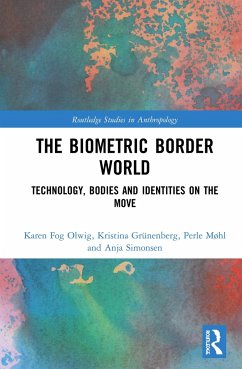
Bodily Exchanges, Bioethics and Border Crossing
Perspectives on Giving, Selling and Sharing Bodies
Herausgeber: Malmqvist, Erik; Zeiler, Kristin
Versandkostenfrei!
Versandfertig in 1-2 Wochen
186,99 €
inkl. MwSt.
Weitere Ausgaben:

PAYBACK Punkte
93 °P sammeln!
Medical therapy, research and technology enable us to make our bodies, or parts of them, available to others in an increasing number of ways. This is the case in organ, tissue, egg and sperm donation as well as in surrogate motherhood and clinical research. Bringing together leading scholars working on the ethical, social and cultural aspects of such bodily exchanges, this cutting-edge book develops new ways of understanding them. Bodily Exchanges, Bioethics and Border Crossing both probes the established giving and selling frameworks for conceptualising bodily exchanges in medicine, and seeks...
Medical therapy, research and technology enable us to make our bodies, or parts of them, available to others in an increasing number of ways. This is the case in organ, tissue, egg and sperm donation as well as in surrogate motherhood and clinical research. Bringing together leading scholars working on the ethical, social and cultural aspects of such bodily exchanges, this cutting-edge book develops new ways of understanding them. Bodily Exchanges, Bioethics and Border Crossing both probes the established giving and selling frameworks for conceptualising bodily exchanges in medicine, and seeks to develop and examine another, less familiar framework: that of sharing. A framework of sharing can capture practices that involve giving up and giving away part of one's body, such as organ and tissue donation, and practices that do not, such as surrogacy and research participation. Sharing also recognizes the multiple relationalities that these exchanges can involve and invites inquiry into the context in which they occur. In addition, the book explores the multiple forms of border crossing that bodily exchanges in medicine involve, from the physical boundaries of the body to relational borders - as can happen in surrogacy - to national borders and the range of ethical issues that these various border-crossings can give rise to. Engaging with anthropology, sociology, philosophy, and feminist and postcolonical perspectives, this is an original and timely contribution to contemporary bioethics in a time of increasing globalization. It will be of use to students and researchers from a range of humanities and social science backgrounds as well as medical and other healthcare professionals with an interest in bioethics.














